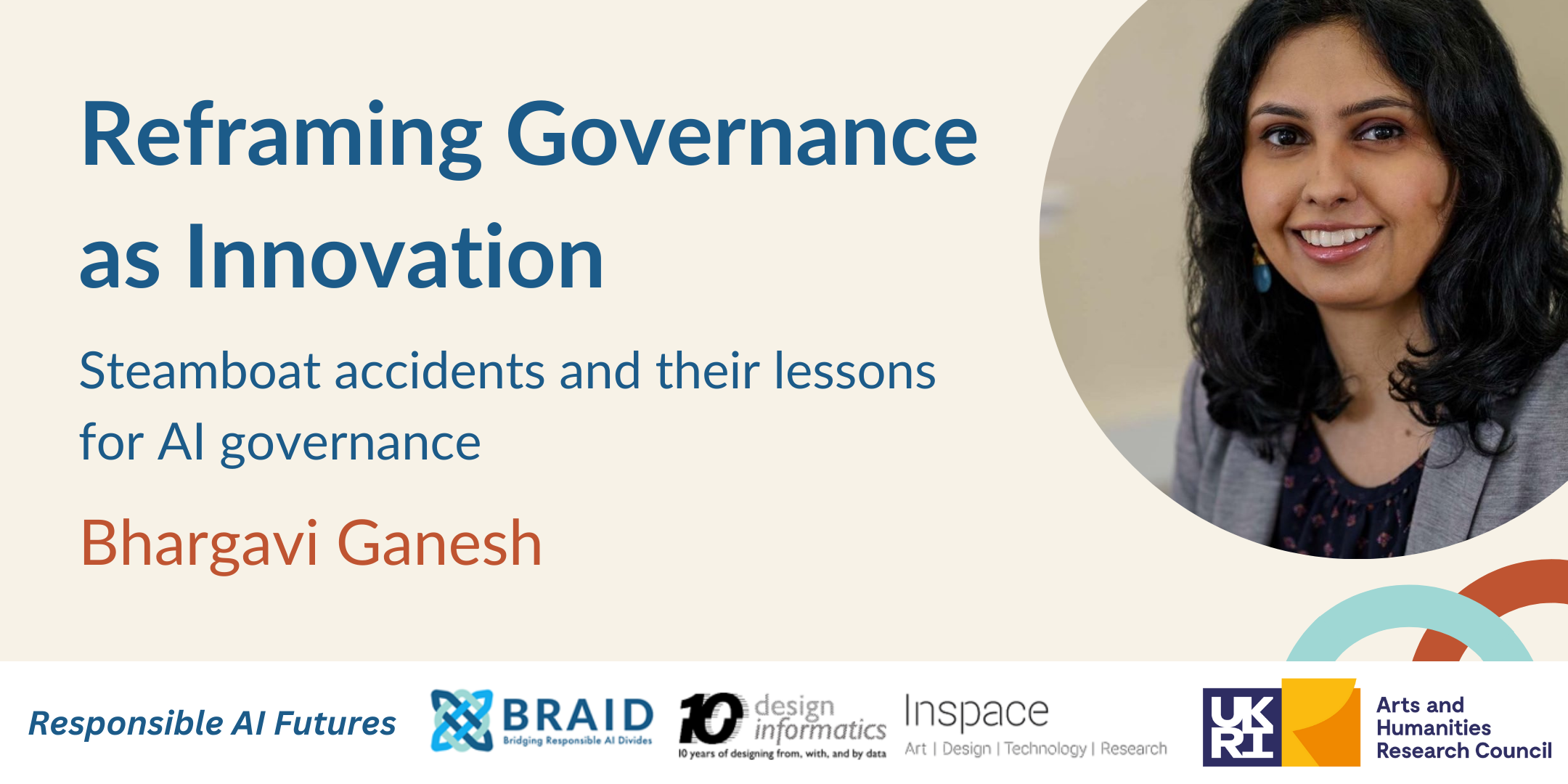
- This event has passed.
‘Responsible AI Futures’ Hybrid Seminar Series – Bhargavi Ganesh

Reframing Governance as Innovation: Steamboat accidents and their lessons for AI governance
Despite the emergence of promising policy proposals worldwide, AI governance is often discussed by policymakers and scholars alike as an intractable challenge. This is largely due to the technical/organisational complexity of sociotechnical AI systems, and a fear that imperfect regulation will result in suppression of technological innovation. In this talk, I will draw on the historical example of a previously “ungovernable” technology- the steamboat in the 1800’s- to challenge latent scepticism and argue that the governance of AI should in and of itself be viewed as an exercise in innovation. Steamboat governance was iterative, requiring many instances of trial and error before achieving its aims. Similarly, global AI governance can be reframed as an exercise in policy innovation. In doing so, we can both celebrate the progress that has already been made, and remain optimistic about the emergence of new regulatory interventions in response to novel challenges generated by AI.
Bio
Bhargavi Ganesh is a PhD student at the University of Edinburgh, working on mixed-method approaches for designing and evaluating the governance of AI. In the past year, she has worked within the Bridging Responsible AI Divides (BRAID) on a consultation for the Department of Science, Innovation, and Technology (DSIT), and interned within the former Centre for Data, Ethics, and Innovation. She is a member of the School of Informatics’ Artificial Intelligence Applications Institute and the Edinburgh Futures Institute’s Centre for Technomoral Futures. Bhargavi is currently affiliated with the Regulation and Design Lab at the University of Edinburgh and the Governance and Responsible AI Lab at Purdue University. Prior to her PhD, Bhargavi’s research focused on the impacts of consumer finance policies on marginalized groups. Bhargavi holds a Bachelor’s degree (with honours) from New York University and Master’s in Computational Analysis and Public Policy from the University of Chicago.
X: @Bhargavi_Ganesh
